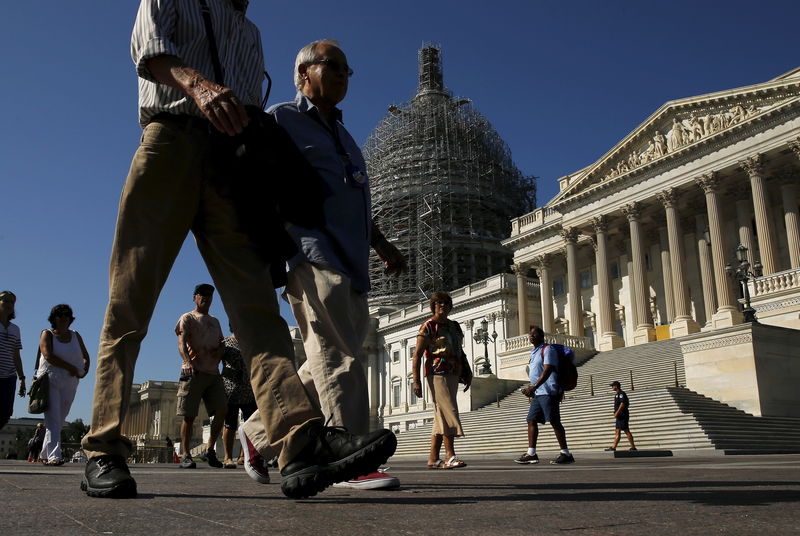By Patricia Zengerle
WASHINGTON (Reuters) - The U.S. Senate Foreign Relations Committee on Thursday backed legislation that would impose sanctions on the Saudi royal family and block some weapons sales, pushing back against President Donald Trump's close ties to the kingdom.
The vote was 13-9 for the legislation, as three Republicans joined Democrats in backing the measure despite expected opposition from Trump.
Many members of Congress have been agitating to hold Riyadh accountable for human rights abuses, including the murder of journalist Jamal Khashoggi at a Saudi consulate in Turkey and a humanitarian catastrophe in Yemen, where Saudi Arabia and the United Arab Emirates are fighting Iran-backed Houthi rebels.
Lawmakers are also unhappy with the Trump administration's decision in May to push ahead with more than $8 billion in military sales, sidestepping the congressional review process by declaring an "emergency" over tensions with Iran.
The Senate and House of Representatives passed three resolutions disapproving of those sales. Trump vetoed the legislation on Wednesday.
To become law, the bill advanced by the committee must still pass the full Republican-majority Senate as well as the Democratic-controlled House of Representatives and either be signed by the Republican president or garner two-thirds majorities in both chambers to override a veto.
The Foreign Relations Committee's Republican chairman, Senator Jim Risch, opposed the bill, whose co-sponsors included Senator Bob Menendez, the committee's top Democrat, as well as Republicans Lindsey Graham and Todd Young.
Among other things, the measure requires sanctions within 30 days on anyone involved in the murder of Khashoggi, a Washington Post columnist and U.S. resident, and an end to the sale of weapons to Saudi Arabia blamed for civilian deaths in Yemen.
Risch said he wanted to hold Riyadh accountable, but argued that there was no point in passing a resolution that Trump would veto.
He also said he wanted to give the Saudis a chance to change.
"We want to change their conduct and I believe we ought to give them an opportunity to do that," Risch said.
Menendez argued that there was no point in advancing legislation that would die in the House.
Reflecting sharp divides in the Senate on the issue, Risch withdrew his own Saudi-related legislation after committee members backed a Menendez amendment that would have made it more similar to his bill.
Risch's bill, the Saudi Arabia Diplomatic Review Act, would not block weapons sales, and focuses instead on barring travel by members of the Saudi royal family, although not the king or crown prince.
